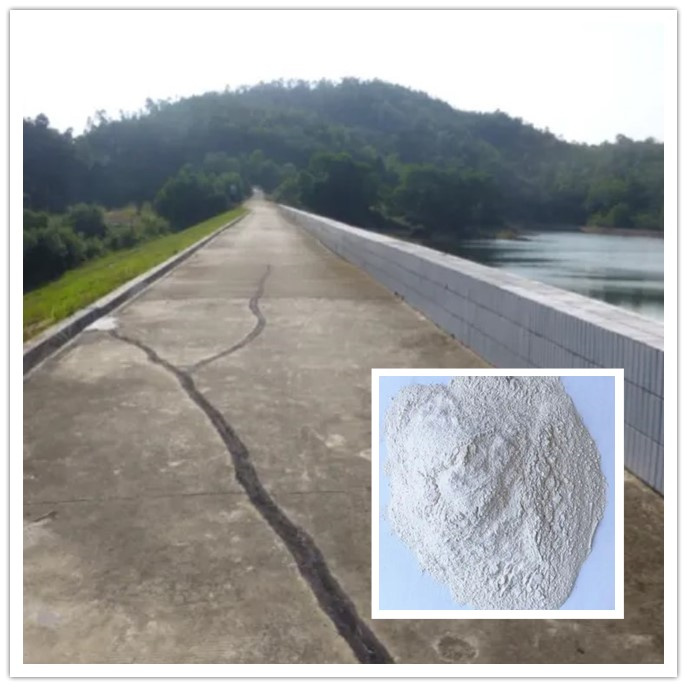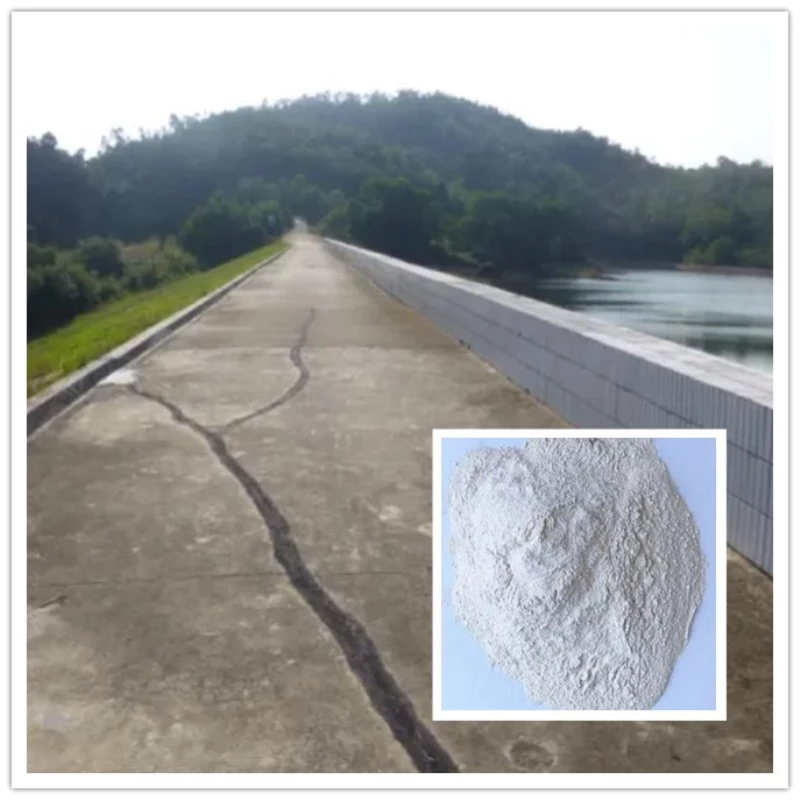Magnesium oxide expansion agent

Keywords
magnesia expansion agent, concrete, shrinkage, cracks, expansion agent, shrinkage compensation
Magnesium oxide expansion agent has the advantages of low water demand, stable hydration product and adjustable expansion performance, and can meet various shrinkage compensation requirements of high performance concrete.
Add magnesia to cement, and the concrete will continue to expand over the next few months or even years. Magnesium oxide is not a poison for concrete. With a suitable amount, the concrete will expand slightly, which can just compensate for the shrinkage caused by temperature and its own reasons, and play a role in crack resistance; if the amount is too high, it will expand excessively.
People can control its activity by controlling the calcination conditions of magnesia: if it is used in small structures, select magnesia with higher activity, which will expand rapidly in the early stage and not expand in the later stage, and control the calcination temperature to be lower; In large-scale concrete structures, low-activity magnesia is used to compensate for the long-term shrinkage of the dam, which is then fired at high temperatures. Therefore, by controlling the calcination temperature of magnesia to control its activity, magnesia is suitable for concrete crack resistance in various situations.
Properties of Magnesium Oxide in Concrete
1. Excessive magnesium oxide content will cause harm to concrete materials
The harm of free magnesia in cement is that the hydration of too high content of magnesia in cement causes the damage of concrete structure, and some bridge buildings also use cement with high content of magnesia. there was destruction,
For the high content of magnesia in cement, the calcination temperature of cement can reach 1400C, resulting in high temperature dead burning of magnesia. Without the expected effect of compensation of concrete temperature drop and shrinkage, when the content is too high, there is a hidden danger of poor concrete volume stability.
2. Control the calcination temperature and the expansion amount of magnesia to achieve the effect of expansion agent to compensate for shrinkage.
The calcination temperature is low and the calcination system is adjustable. The calcination system can be formulated according to the engineering needs and the expansion law of magnesia, so that the hydration speed and expansion amount of magnesia can be freely adjusted to ensure coordination with the temperature drop and shrinkage deformation of large-volume concrete. At present, in the application of a large number of water conservancy dam projects, the use of light-burned magnesia expansion agent has a good effect of compensating for shrinkage.
Light-burned magnesia expansion agent has the advantages of less hydration water demand, moderate expansion speed, long expansion period, delayed micro-expansion characteristics, and stable hydration products, which can better meet the needs of low water-to-binder ratio concrete to compensate for shrinkage.

Keywords
magnesia expansion agent, concrete, shrinkage, cracks, expansion agent, shrinkage compensation
Magnesium oxide expansion agent has the advantages of low water demand, stable hydration product and adjustable expansion performance, and can meet various shrinkage compensation requirements of high performance concrete.
Add magnesia to cement, and the concrete will continue to expand over the next few months or even years. Magnesium oxide is not a poison for concrete. With a suitable amount, the concrete will expand slightly, which can just compensate for the shrinkage caused by temperature and its own reasons, and play a role in crack resistance; if the amount is too high, it will expand excessively.
People can control its activity by controlling the calcination conditions of magnesia: if it is used in small structures, select magnesia with higher activity, which will expand rapidly in the early stage and not expand in the later stage, and control the calcination temperature to be lower; In large-scale concrete structures, low-activity magnesia is used to compensate for the long-term shrinkage of the dam, which is then fired at high temperatures. Therefore, by controlling the calcination temperature of magnesia to control its activity, magnesia is suitable for concrete crack resistance in various situations.
Properties of Magnesium Oxide in Concrete
1. Excessive magnesium oxide content will cause harm to concrete materials
The harm of free magnesia in cement is that the hydration of too high content of magnesia in cement causes the damage of concrete structure, and some bridge buildings also use cement with high content of magnesia. there was destruction,
For the high content of magnesia in cement, the calcination temperature of cement can reach 1400C, resulting in high temperature dead burning of magnesia. Without the expected effect of compensation of concrete temperature drop and shrinkage, when the content is too high, there is a hidden danger of poor concrete volume stability.
2. Control the calcination temperature and the expansion amount of magnesia to achieve the effect of expansion agent to compensate for shrinkage.
The calcination temperature is low and the calcination system is adjustable. The calcination system can be formulated according to the engineering needs and the expansion law of magnesia, so that the hydration speed and expansion amount of magnesia can be freely adjusted to ensure coordination with the temperature drop and shrinkage deformation of large-volume concrete. At present, in the application of a large number of water conservancy dam projects, the use of light-burned magnesia expansion agent has a good effect of compensating for shrinkage.
Light-burned magnesia expansion agent has the advantages of less hydration water demand, moderate expansion speed, long expansion period, delayed micro-expansion characteristics, and stable hydration products, which can better meet the needs of low water-to-binder ratio concrete to compensate for shrinkage.
Supplier's popular products
Contact Supplier
We have more categories for you. lf you can't find the products you want above,just fill in the form and tell us whatproducts you want to import from China.















